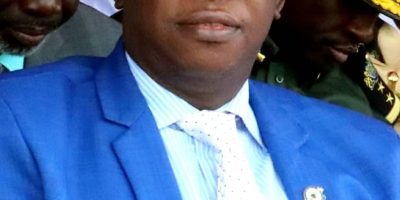 by Alagi Yorro Jallow.
by Alagi Yorro Jallow.
Fatoumatta: Let us not confuse our fluency in English for our brilliance of thought and acting smart as a trait being an exemplary leader. An exemplary leader never wants to be the smartest person in the room. You never want to be the smartest person in the room—and if you are, you are in the wrong room. Great leaders know this and seek to surround themselves with masters of their crafts. The leader’s job, then, is to play the orchestra.
Fatoumatta: A real leader gives constructive, not negative feedback. There is a difference between “constructive criticism” and plain negativity. People who spew negativity are not doing anything to help anyone. A great leader looks for ways to help, not ways they can tear others down in the process. The uprightness of a decision is not determined by our ability to defend it. Let us not become great at defending ourselves. Slavery was defended with good reasons. Racism was adequately defended even with the backing of scriptures from the holy books. Let us not be driven by our ability to justify what is wrong and illegal.
Fatoumatta: When you are in authority and always find yourself defending and justifying your decisions, there is something wrong. We should be careful when we become good at winning arguments because winning an argument is not the same as being right. After all, freedom of expression has always been about something bigger than politics. It is about the character of our country – who we are and who we aspire to be. Moreover, that is always worth fighting for.
Fatoumatta: When we choose to speak, we should not just be loud but be clear too. When we send signals, we must know and understand what those signals and messages mean to them. Our politics are divided. They have been for a long time. Furthermore, while I know that division makes it difficult to listen to Gambians with whom we disagree, we need to do it today.
Fatoumatta: Our support for our political leaders must go beyond singing and dancing for them. We should hold them accountable. Every leadership is a call to responsibility. Our leaders must ensure that those who hold public office in this dispensation understand that they are trustees of legacies of hope created by others’ sacrifices. They must be made to realize that good governance and leadership are hinged on the ability to uphold moral values and passion for rendering selfless services, commitment to service, and dedication to the rule of law.
Leadership is for rounded characters that have imbibed, positive social norms, and values; it is not conferred on individuals that lack the moral fabric to direct the affairs of life. Simply put, leadership is a critical defining element for positive change. Although we seek leadership, we do not seek any leadership. We seek good leadership. A leadership that is defined by the highest values that can help us fulfill our aspirations. Furthermore, they must first be driven by the pursuit of the highest values that can produce sanity in the polity.
Fatoumatta: To mount a campaign against corruption without challenging the frontiers of current thinking is really to pay lip service to the idea of enforcement of law and order. If we do not submit ourselves equally to the rule of law, which is the most potent invention of humans that has helped to keep society’s moral fabric together and equalize the rich and the poor, we should have no legitimate expectation to make progress as a nation.
“Constructive Criticism and Plain Negativity”




Ma sha Allah great and thanks for sharing